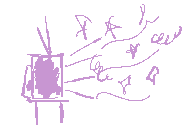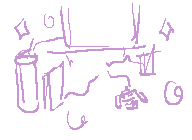recent activity
KawaiiDaMarten voted xxFP for Sara "Chibi" Taylor.
KawaiiDaMarten voted xxFP for Sara "Chibi" Taylor.
StuporMundi voted LIE for Frederick II, Holy Roman Emperor.
StuporMundi voted VLFE for Frederick II, Holy Roman Emperor.
StuporMundi voted so/sp for Frederick II, Holy Roman Emperor.
StuporMundi voted ET(EN) for Frederick II, Holy Roman Emperor.
StuporMundi voted 5w6 for Frederick II, Holy Roman Emperor.
StuporMundi voted ENTP for Frederick II, Holy Roman Emperor.
shineinouzen voted 6 for The Book The Nine Nations of America by Joel Garreau.
shineinouzen voted 6 for Shinei Nouzen.
shineinouzen voted 6 for Shinei Nouzen.
shineinouzen voted 6 for Shinei Nouzen.
Bostonma voted ESFJ for Anna.
Bostonma voted ISFJ for Elsa.
Bostonma voted INTJ for Paul Gower.
Bostonma voted INFJ for Andrew Gower.
Bostonma voted ISTJ for The Grinch.
Bostonma voted INFP for History Major.
Bostonma voted ISTJ for Natural History.
Bostonma voted ENTJ for Joan of Arc.
Bostonma voted ISxJ for Twilight Sparkle.
Bostonma voted ISTJ for Twilight Sparkle.
Bostonma voted IxTJ for Twilight Sparkle.
Bostonma voted ExFx for Rarity (EQG).
Bostonma voted ENTJ for Sunset Shimmer.
bostonma voted INFJ for Twilight Sparkle (Alternate EQG, Nazi Germany).
bostonma voted xNFx for Twilight Sparkle (Alternate EQG, Japan).
bostonma voted xNTJ for Sunset Shimmer.
bostonma voted so/sx for PDB Logic, if a person isn't a certain type that matches the country profile with the flag image, they are straight despite them being in prison or jail in that country.
bostonma voted xxxP for Rarity (Alternate EQG, Japan).
bostonma voted xSxJ for Cyril Ramaphosa.
bostonma voted ENFP for Abdel Fattah El-SiSi.
xenine voted INTJ for Iannis Xenakis.
xenine voted ENFJ for Miguel Serrano.
bostonma voted IxFx for Psychology Major.
bostonma voted delete for SEI-Fe.
Bostonma voted ENFJ for Unstructured Learning.
Bostonma voted xxxP for SZA.
Bostonma voted ESxx for When interacting with people is like attending an Ivy League College/University.
Bostonma voted ISFJ for SEI-Fe.
Bostonma voted sp/sp for SEI-Fe.
Bostonma voted ISFJ for SEI-Fe.
Bostonma voted 7w6 for SEI-Si.
Bostonma voted ISTP for Jeff Landry.
Bostonma voted 5w4 for Apathetic Misfit.
bostonma voted ESTJ for North Vietnam.
bostonma voted ENTJ for Professor Gerald Lambeau.
bostonma voted INFP for Sean Maguire.
bostonma voted so/sx for Jim Gordon.
lxbfYeaa
Government, Politics, and Law

Business and Economy

Philanthropy and Humanism

Writing and Literature

Visual Arts and Fashion

Music and Performing Arts

Sports and Competitive Play

Television, Mass Media, and Society

General Artists

Science, Technology, and Engineering

Literature

Film and Television

Cartoon and Animation

Comics

Games

Miscellaneous and General

statistics
| all-time | |
| entries | 17926 |
| users | 1217 |
| comments | 8438 |
| mbti | 26522 |
| ennea | 22329 |
| variant | 13915 |
| tritype | 9024 |
| socio | 15397 |
| psyche | 3849 |
| hexaco | 197 |
| last 24 hours | |
| comments | 0 |
| mbti | 0 |
| ennea | 0 |
| variant | 0 |
| tritype | 0 |
| socio | 0 |
| psyche | 0 |
| hexaco | 0 |


















comments
nicotineseries
Thanks for this. I have a little understanding of what Ti and Fe, but not much. If you have time, could you explain what Ti means here, and maybe give an example of a famous person?Woll Smoth
What is Fi to IDRlabs? Let’s look at how they describe it:IDRlabs: “Introverted Feeling, as a judging function, is inwardly focused, centering on the subjective emotional landscape of the individual. It is the function most attuned to ‘what matters to me,’ prioritizing personal authenticity and inner harmony over external expectations. … An artist might use Fi to create work that reflects their soul, unswayed by trends; a friend might offer support that feels uniquely genuine, rooted in their own emotional truth; a worker might choose a path that matches their values, even if it’s less conventional. The function’s strength lies in its ability to anchor individuals in their own identity.”
IDRlabs: “Sympathetic parallelism” (Which they take from Jung)
(What it means to IDRlabs is that Fi lives primarily in an inner world of values and feeling-images, running parallel to the outer social and practical world of Te and Fe.)
IDRlabs: “Fi prefers inner harmony through purity of values.”
(So instead of organizing the outer world like Te, Fi focuses on preserving inner emotional authenticity.)
IDRlabs: “It is the inner intensity of the passion that is the primary motivational factor” and “Fi is quite content with having no other aims besides itself.”
(In other words, Fi does not primarily seek efficiency, external validation, or measurable results like Te. It seeks inner sense of sincerity and emotional truth.)
IDRlabs: “Fi explores the eternal, underlying values; it brings the values into increased purity”, “Fi will often be seen in the negative, in terms of what it doesn’t like”, “The inner, creative world that is not compromised by outside interaction is more important than the outer world”, and perhaps most crucially “Fi types can easily be creative as long as the inner intensity of the feeling is not fundamentally reshaped by demands from the outer world.”
(Which explain why so many IDRlabs IFP types, ISFPs and INFPs, tend to emphasize on:
* Following passions deeply and purely
* Staying true to inner feeling
* Loving art because it allows purity of expression
* What they strongly like or dislike
* Disliking the corporate or standardized systems
* Only acting when something “feels right”)
IDRlabs: “The inner, creative world that is not compromised by outside interaction is more important than the outer world” and “In the creative endeavor, the artist can posit a parallel world that is entirely under his own control.”
IDRlabs: “The primary objective of the Fi function is to evaluate psychic material… felt with the utmost vivacity, purity, and passion.”
IDRlabs: “Fi seizes upon the internal sentiment that is generated by contact with the outer occurrence.”
So all in all taking all the quotes together, this explains why IDRlabs Fi tend to emphasize indirectly or directly about:
* Deep internal feeling
* Strong personal value clarity
* Creative self-expression
* Refusal to compromise authenticity
* Acting mostly when emotionally aligned
* Protecting inner emotional/dream world from external control or influence
So Fi’s statements will be more so examples of:
* Inner truth
* Emotional necessity
* Personal alignment
* Purity of expression
And will be much less likely about about:
* Metrics
* Strategy
* Methods of persuasion and social maneuvering
* Societal agreement or etiquette
* Market timing
Now with regard to Dido, these quote showcase the Fi dominant type’s process to a tee, par excellence.
Dido: "I really feel things deeply and that’s why I write songs."
Dido: “I write based on how I see and feel things ... It’s all about transferring how I see the world into a song."
Dido: “[The way] sort of been the way I’ve been with everything in life [is] if I’m not feeling like I want to put the music out, then I won’t put the music out. Or if I’m not feeling the need to get up on stage, then I won’t get up on stage.”
Dido: “People keep saying, ‘Why did you step away [from making music]?' It didn’t really feel like that to me. I just write songs. ... I’ve never made records until enough of it builds up and I feel like I’ve got something to say."
Dido: "I [am] very clear on what [I] like, and what [I] don’t."
Dido: "Music had always been my personal thing, no one invaded it, no one bothered me, it was absolutely mine. It was my escape. Whenever anything was bugging me, I'd just go and play my music and it made me happy. And there was something about them giving me money for it that, to me, symbolised it being taken away. I felt like I no longer had the thing that made my life worth living." (This quote is also evidence for inferior Te being rejected in preference for Dominant Fi)
Potential evidence for inferior Te:
The Guardian: "[Her parents were] angry at her lack of self-discipline."
Some Se-Ni:
Dido: "To me a song is just about the flow of it, it just has to flow and me to never notice in a way, it has to feel whole and real.”
(Very similar to ISFP Jonsi’s quote "Everything that Sigur Ros does has to flow; it is like good karma - if you do honest things, then everything is as it should be." Different from the eclectic and divergent process of Ne)
Woll Smoth
I would like to say that unlike the others, I have not researched Jennifer Lawrence nearly as much as the others so I'm not an expert with regard to Jennifer Lawrence. This one is more akin to analyzing the quotes that are already on her page on your site presented in a different angle. So, unlike my previous posts arguing about someone's type, this will be much less evidence based. All I ask for one to do is to test the ESTP hypothesis out to determine if it's a better fit, which I believe is to be her most likely type based on what I know.For starters, I'm in agreement with IDRlabs that she is not an Fi user. She doesn't showcase a preference for the "sympathetic parallelism", so to speak, with the characters she's playing, but rather these modes of cognition seem very foreign to her:
[on her acting method]
Lawrence: "To you it looks emotionally straining, but I don't get emotionally drained, because I don't invest any of my real emotions. I don't take any of my characters' pain home with me, I don't even take it to craft services. I've never been through anything that my characters have been through. And I can't go around looking for roles that are exactly like my life."
Lawrence: "[My character Tiffany in Silver Linings Playbook] was just a character I one-hundred per cent did not understand at all… She’s like, ‘I’m messed up, I’m not like everybody else, I’ve got issues. Take it or leave it because I like myself.'"
Now does this mean that all Ti/Fe types will agree with what Jennifer Lawrence has stated here? No. But based on this, we can at least safely assume that she lacks the "sympathetic parallelism ... [where it] must also convey it to one’s fellowman in such a way that a parallel process takes place in him" that types with conscious Fi often evince, stating that she doesn't "invest any of [her] real emotions" and that expressing oneself in a "take it or leave it" fashion is something that she "one-hundred per cent did not understand at all." To say that one doesn't really get it is one thing, to "one-hundred per cent ... not understand at all" is another ballpark. It doesn't rule out Fe but it decreases the likelihood of her having Fi high in her consciousness.
Now we got that out of the way, let's move on to the ENFJ vs ESTP debate. Both types have conscious and semi-conscious Fe and Se. The following quote (taken from her page on IDRlabs) is a good example of this interplay:
Vogue Magazine: "The waitress [came to our table], saying, 'This is a gift from the kitchen. They are lamb meatballs.' After she was gone, Lawrence said, 'I can't stand it. I don't eat lamb. I think it tastes like feet.' I said I didn't like lamb, either. Surreptitiously, we hid the meatballs in napkins while discussing her upcoming job. ... [Later] the waitress [came] back: 'Did you like 'em?' She meant the meatballs. Lawrence turned on the acting: 'They were delicious. They were awesome.' The waitress left. For the first time Lawrence seemed unhappy. 'I'm feeling ill,' she said. 'Look at my leg. I'm shaking my leg because I knew she was going to ask. I get the weirdest anxiety.' ... As Lawrence made her way out of the restaurant, the woman behind the bar said, 'You were great in Winter's Bone.' Lawrence thanked her. Outside, on the sidewalk, she said, 'I don't hear that very much. That's going to put a kick in my step.' In her hand was a napkin loaded with lamb meatballs."
So Jennifer Lawrence’s Feeling seems to be oriented toward the objective situation, the person she is speaking to, or the appropriate ways to address them. This suggests that she has Extroverted Feeling, a function that often manifests as an appreciation of unifying under the same sentiments.
However, Lawrence's Feeling (on the whole) doesn't appear to be very mature. She tends to switch between being polite and being very confrontational saying “I just generally, once I enter a public place, I become incredibly rude. I turn into a huge asshole" (Source: https://www.youtube.com/watch?feature=shared&t=60&v=NqntFonA2iY). This alternating behavior mostly fits with tertiary extroverted feeling (in this context). On one hand, she is drawn to courteous behavior, but on the other hand, she is prone to be combative. Her clever and waggish use of Fe in the Vogue Magazine quote seems to be more akin to that of ETP than EFJ.
Lawrence: "I'm a good bullshit detector. ... Ever since I was a kid, I was always calling shit out."
Now while this quote is not a direct constituent of her type, I would like to note that STPs are typically good BS detectors (or at least It's something many of them seek to sniff out, whether warranted or unwarranted). Ti and Se engage with the logical self-symmetry of whatever is currently being engaged within the immediate environment. This tendency enables them to challenge individuals or situations that don't align with their logic, even if it means sacrificing harmony with others. As stated by ESTP George Patton, "If everybody is thinking the same thing, then somebody isn't thinking." Similarly, ESTP Lyndon B. Johnson remarked, "If two men agree on everything, you may be sure that one of them is doing the thinking." All else being equal, if we were to compare an ENFJ and an ESTP, the latter is more inclined to immediately confront and expose (what they perceive to be) nonsensical or deceitful individuals and circumstances.
Another point I would like to address is the fact that her page in IDRlabs uses quotes from her colleagues and herself that illustrate her astuteness:
Lawrence: "I always know when I'm being lied to. ... It's okay to lie sometimes and to exaggerate, but I always know when people are doing it."
Francis Lawrence: "Jen is the most in-tune person I've ever met. It's uncanny, but her gift is that she can read people so quickly and use that on-screen. I would hate to date her because you would never be able to get away with anything."
Emma Stone: "She has unbelievable clarity. She can witness a situation or meet a person and see through the entire thing almost instantly. It's stunning."
While I don't disagree with the idea that ENFJs can certainly be astute, I don't see why the quotes couldn't also apply to ESTPs as well. ESTPs are arguably the most shrewd and astute of all the types. Se is the least illusioned perceiving function; it gives the ESTP a clear, awareness of the situation. Ti/Fe navigates this Se world, bottom-lining situations while also having good practical understanding of the social world. And with their repressed Ni being relegated to the inferior position along with higher Thinking than Feeling, they are typically not beset by in-between-the-lines illusions or ideals unless they are unhealthy or their "infantile" Ni makes them go into conspiracy theory mode.
As an aside, from most of what I've seen of her, I don't see many signs of conscious Ni in Jennifer Lawrence. She seems to be mostly oriented towards concrete observation and doesn't seek to subject these observations to an insight into the "undercurrents of humanity" but rather sees them as an end in itself.
With these points, I hope to at least raise some awareness of the possibility of Jennifer Lawrence being an ESTP.
pHqghUme
555'"pHqghUme
555pHqghUme
555pHqghUme
555pHqghUme
555pHqghUme
555pHqghUme
555'"pHqghUme
555pHqghUme
555pHqghUme
555pHqghUme
555pHqghUme
555pHqghUme
555'"pHqghUme
555pHqghUme
555pHqghUme
555pHqghUme
555